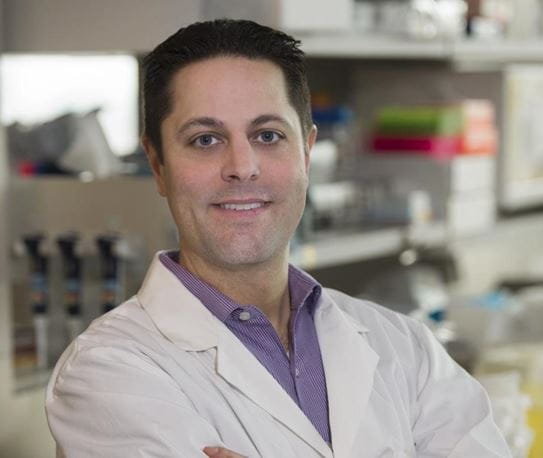Your support is helping a first-of-its-kind technology deduce who will respond to immunotherapy and who will develop side effects.
1 min. read

Dr David Brooks, CCS-funded researcher
Who will respond to immunotherapy? Who will develop serious side effects? How to determine this before treatment is given? These are among the biggest challenges in adopting what could be life-saving immunotherapy more widely. But Dr David Brooks and his team have developed an innovative, first-of-its-kind technology to address these questions and, with funding from the Canadian Cancer Society (CCS), they’re testing their approach to determine if it can help doctors make more informed decisions about who should receive immunotherapy.
“Cancer is an awful set of diseases that strike without warning, with devastating consequences,” says Dr Brooks of his motivation to study cancer. “I wanted to understand why our immune system fails to eliminate cancer. We felt that once we understood the specific tactics that cancer cells employ to suppress the immune system, we could design targeted therapies to turn the tables and give the immune cells the upper hand.”
Their approach measures the level and type of inflammation, as well as changes in a person’s immune system before, during and after immunotherapy treatment. From these findings, the researchers identify inflammation-related markers that predict whether a person will benefit or experience harmful reactions.
“This has tremendous potential to guide patient care, and CCS was critical to get our project off the ground,” explains Dr Brooks. “CCS is unique because they see the importance of sponsoring high risk, high reward projects with the ability to truly impact patient care.”
“Without the donor support behind this funding,” he continues, “we would not have had the funds to discover or develop this technology. Donors like you made our study possible. Thank you!”
“Cancer is an awful set of diseases that strike without warning, with devastating consequences,” says Dr Brooks of his motivation to study cancer. “I wanted to understand why our immune system fails to eliminate cancer. We felt that once we understood the specific tactics that cancer cells employ to suppress the immune system, we could design targeted therapies to turn the tables and give the immune cells the upper hand.”
Their approach measures the level and type of inflammation, as well as changes in a person’s immune system before, during and after immunotherapy treatment. From these findings, the researchers identify inflammation-related markers that predict whether a person will benefit or experience harmful reactions.
“This has tremendous potential to guide patient care, and CCS was critical to get our project off the ground,” explains Dr Brooks. “CCS is unique because they see the importance of sponsoring high risk, high reward projects with the ability to truly impact patient care.”
“Without the donor support behind this funding,” he continues, “we would not have had the funds to discover or develop this technology. Donors like you made our study possible. Thank you!”
Help create a future without cancer
With support from readers like you, we can continue to make a meaningful impact for people affected by cancer.
We are determined to increase survival, stop cancer before it starts, and improve lives. But we can’t do it without you.
If everyone reading this gave just $5, we could achieve our goal this month to fund the most promising research, compassionate support and transformative advocacy. Please give today because every contribution counts. Thank you.
